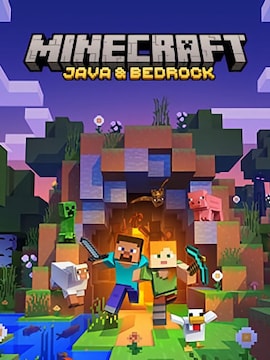RPG, which stands for Role-Playing Games, is an exciting genre that allows players to embody various characters, explore incredible worlds, and create their own stories.
Thanks to games of this type, we can literally be whoever we want and experience epic adventures that we would never have the chance to experience in ordinary life.
But what characterizes the RPG genre? What is the history of RPG games, and what are their most important mechanics? Are there different types of RPG games? We will answer these and other questions in the following article!
History of RPG – From Tabletop to Screen
Currently, known computer RPG games were inspired by pen & paper RPG games, which were based on players’ imagination. The first games of this type emerged in the 1960s, but the genre was popularized by Dungeons & Dragons, created in 1974 by Gary Gygax and Dave Arneson.
Just a few years later, the first computer RPG games began to appear. The precursor in this field was Akalabeth: World of Doom, created by Richard Garriott in 1979, and then Ultima (also by the same author), released in 1980, which spawned nine instalments through the years.
Currently, the market for computer RPG games is huge and includes not only titles set in medieval fantasy realms (like the first games of this type) but also post-apocalyptic productions, those set in space, or the contemporary world.
Interestingly, tabletop RPG games, which also have thousands of fans, are still being produced.
Mechanics Characterizing RPGs
What characterizes RPG games? Well, games of this type are based on a specific mechanic. Players control selected or self-created characters, which they develop in their chosen way (mastering specific skills) and, using these characters, traverse worlds full of tasks and puzzles, interacting with them.
It is up to the players to solve given tasks or situations in their own way because RPG games usually anticipate several methods of their execution. Often, the storyline of RPG games is characterized by non-linearity, which only emphasizes the individuality and how the game world is created through the actions of a particular character.
Interestingly, this mechanic applies both to pen & paper games and computer games, with the difference that in classic tabletop RPGs, the Game Master describes the situations, and the players make decisions, rolling dice to determine the results of their actions.
In video games of this genre, combat systems, character development, and interactions with the environment are automated, but they still offer players the opportunity for exploration, moral choices, and skill development according to their own ideas.
Character creation is a key element of RPG games. Both in pen & paper and computer games, players have the opportunity to choose races, classes, skills, and traits that define their character. This allows for the expression of individuality and the exploration of different play styles.
It is also worth noting that in this genre, we can distinguish between two approaches – eastern (games originating in Asia) and western (European and American).
Although the mechanics and assumptions are similar, we can notice several differences, the most important of which is the narration. In western games, the focus is on exploration and creating a story “from zero to hero”, while eastern RPGs focus on deep stories, of which the player is often only a part.
RPG Classics
In the world of classic RPG games, besides Dungeons & Dragons, there are other well-known titles such as Call of Cthulhu, Warhammer Fantasy Roleplay, Cyberpunk, or Vampire: The Masquerade, which attract players with their unique worlds and mechanics.
In the world of computer games, apart from the classic Ultima series, there are few influential titles.
For example, the Baldur’s Gate series, based on D&D rules; The Elder Scrolls series with its huge lore; the post-apocalyptic Fallout series; or the numerous installments of the Final Fantasy series, representing the jRPG (Japanese RPG) subgenre, with its first installment released in 1987.
Summary
RPG games, both pen & paper and computer, offer unparalleled opportunities for exploring incredible worlds, creating characters, and crafting our own stories.
Although approaches may differ depending on the subgenre, type, country of origin, and medium, the idea of embodying another character and discovering new worlds remains the foundation of this fascinating genre of games!




